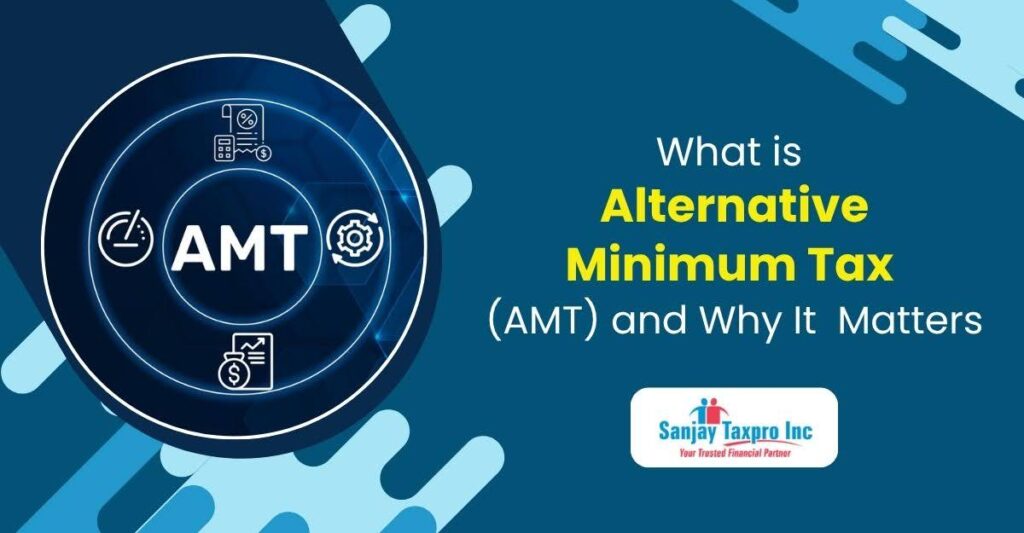When preparing your taxes, you may come across the term Alternative Minimum Tax (AMT). While not commonly discussed, the AMT can have a significant impact on your final tax bill especially for high-income earners and taxpayers claiming multiple deductions.
In this blog, we’ll help you understand what is alternative minimum tax, who it affects, and why it’s important to factor AMT into your tax planning strategy.
What is Alternative Minimum Tax?
The Alternative Minimum Tax is a secondary tax calculation designed to ensure that taxpayers who benefit from certain deductions and credits still pay a minimum level of tax. Initially created to prevent wealthy individuals from avoiding taxes entirely, AMT now applies to a broader group of taxpayers—especially those living in high-cost states like California.
When filing your taxes, you must calculate your liability under both the regular tax system and the AMT system. If the AMT amount is higher, you’ll need to pay that amount instead.
Who Might Be Affected by AMT?
The AMT is more likely to apply if you:
- Live in high-tax states such as California
- Claim large deductions for state and local taxes (SALT)
- Exercise incentive stock options (ISOs)
- Have significant capital gains
- Claim high mortgage interest or medical expense deductions
- Are a dual-income household with substantial combined earnings
At Sanjay Taxpro, we often assist Indian professionals, tech employees, and small business owners in areas like Sunnyvale, San Jose, and Fremont who are unaware they may be subject to AMT.
What Makes AMT Different?
Unlike the regular tax system, the AMT does not allow certain deductions and exemptions. For example:
- State and local income tax deductions are not permitted
- Personal exemptions are disallowed
- Some mortgage interest and medical expense deductions may be limited
- Business depreciation methods may need to be adjusted
Additionally, AMT calculations may include specific types of income that are normally excluded, such as the bargain element from stock options or tax-exempt interest from private activity bonds.
Why You Should Plan for AMT
AMT can lead to an unexpected tax burden if not identified early. That’s why year-round tax planning is essential—especially if you receive stock-based compensation, own a home in California, or operate a business.
At Sanjay Taxpro, we offer:
- AMT forecasting and analysis
- Tax strategies for incentive stock options
- Planning to recover unused AMT credits in future years
- Personalized advice for Indian families and businesses in California
Talk to the AMT Experts at Sanjay Taxpro
If you’re unsure whether the alternative minimum tax applies to you, don’t wait until it’s too late. Our team at Sanjay Taxpro helps clients stay ahead of AMT issues and ensures smart, compliant, and tax-efficient financial planning.

